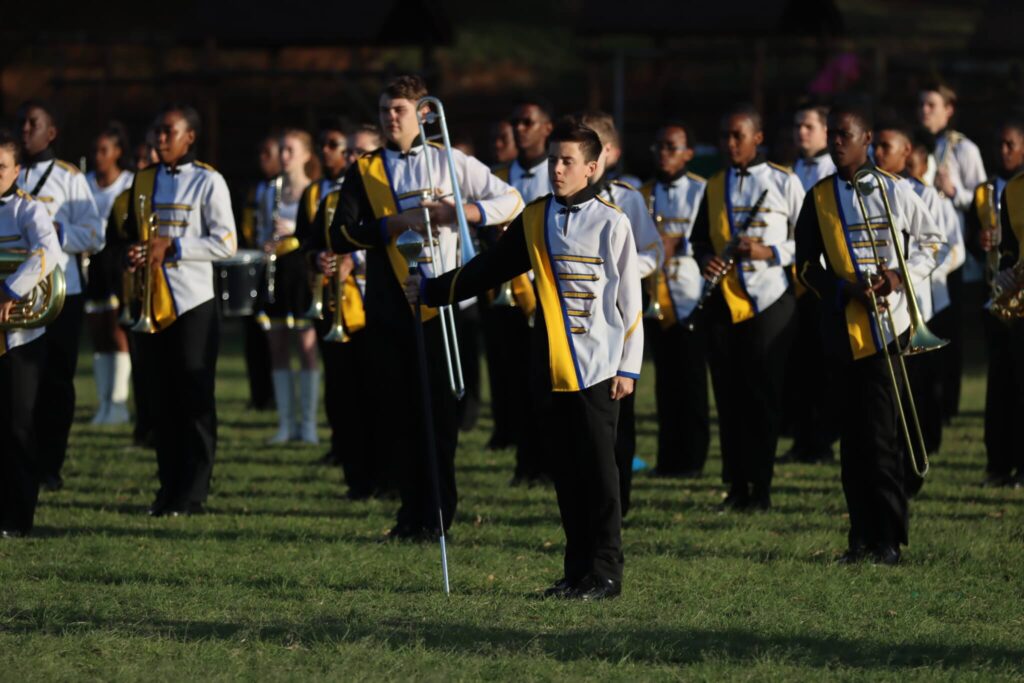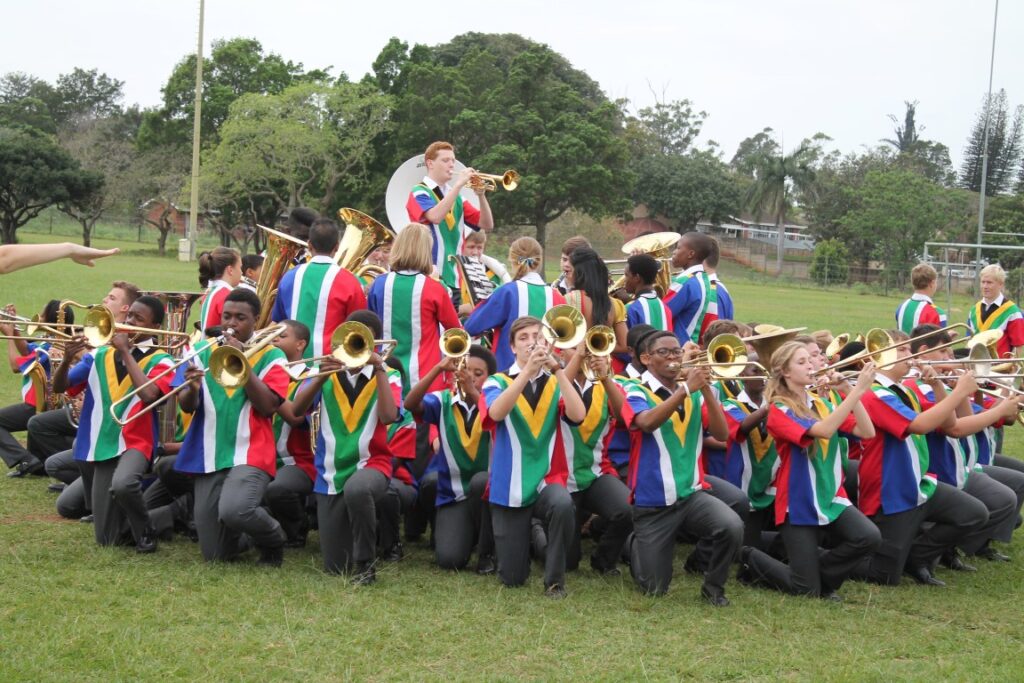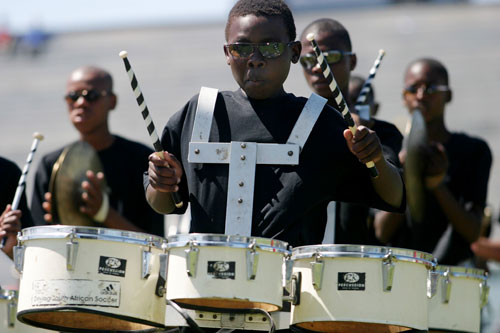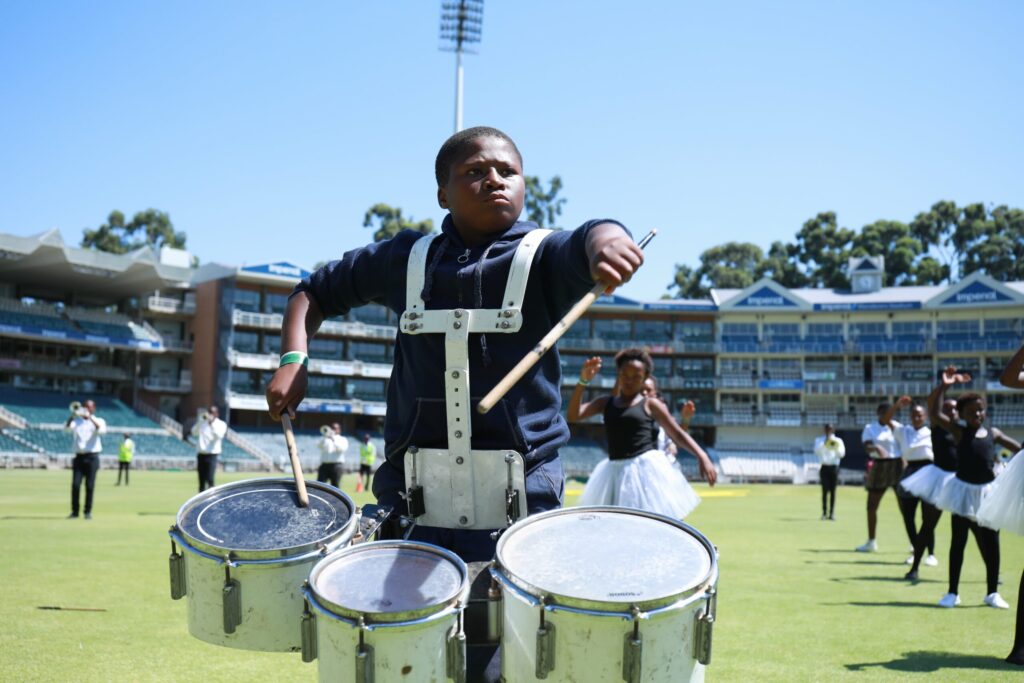Marshall Music Blogs
How Modern Music is Shaping the Future of Marching Bands
The image of the marching band evokes a specific scene: crisp uniforms, precise formations, and a rousing rendition of John Philip Sousa’s “Stars and Stripes Forever.” This traditional image, however, is undergoing a transformation. Modern music is increasingly finding its way onto the marching band field, injecting a dose of energy and excitement that’s captivating audiences and attracting a new generation of performers.
This shift isn’t a rejection of tradition, but rather an evolution. Marching bands have always been a reflection of their time, adapting to popular tastes while maintaining their core function of school spirit and entertainment. Let’s delve into the ways modern music is influencing marching bands, exploring the benefits, challenges, and the exciting future this fusion creates.
A Shot of Pop: Engaging a New Generation
The incorporation of modern music – pop, hip-hop, electronic dance music (EDM) – into marching band performances serves several key purposes. Firstly, it acts as a bridge between generations. Traditional marching band repertoire can sometimes feel dated to younger audiences. By incorporating familiar pop tunes, bands can create a more relatable experience, sparking interest and encouraging participation. This is particularly evident at halftime shows, where high-energy pop medleys can electrify crowds and generate school spirit.
Beyond the Melody: Borrowing Techniques for a Dynamic Show
Modern music isn’t just about the tunes themselves; it’s also about the production techniques and performance styles. Marching bands are increasingly incorporating elements like rhythmic grooves, layered percussion parts, and electronic samples to create a more dynamic and engaging sound. Drumlines are drawing inspiration from hip-hop, with intricate syncopations and polyrhythms adding a fresh dimension to the traditional marching band beat. Visual elements are also evolving, with flag routines influenced by contemporary dance and props that complement the musical selections.

A Platform for Creativity: Pushing Boundaries and Breaking the Mold
Perhaps the most exciting aspect of this modern music influence is the creative freedom it fosters. Arrangers are no longer limited to traditional marching band repertoire. They can now take a pop song, deconstruct it, rebuild it with marching band instrumentation, and create something entirely new. This opens doors for student involvement, allowing them to contribute their own musical ideas and participate in the arrangement process.
Historically Black Colleges and Universities have long been at the forefront of pushing boundaries in marching band culture. Their bands have embraced elements of R&B, funk, and hip-hop for decades, creating a unique and energetic performance style that has influenced marching bands across the country.
The Challenges: Balancing Tradition and Innovation
This shift towards modern music isn’t without its challenges. Traditionalists may feel that the incorporation of pop elements undermines the core values of marching band. There’s also a concern about maintaining musicality amidst complex arrangements and high-energy performance styles. Finding the right balance between tradition and innovation is crucial.
Striking a Chord: The Importance of Music Education
One of the most important aspects of marching band, regardless of musical style, is music education. Learning to march in formation, read music, and perform as part of an ensemble are valuable skills that benefit students far beyond the marching field. Modern music can actually be a powerful tool for music education. By incorporating popular tunes, directors can spark interest in music theory, composition, and performance. Students can learn about different genres, analyze song structures, and explore the creative process involved in arranging music for marching band.
The Future of Marching Bands: A Symphony of Styles
The future of marching bands is bright and full of possibilities. Modern music will undoubtedly continue to play a significant role, with bands incorporating elements of popular genres while staying true to their core function. This fusion will create a more diverse and exciting marching band experience, attracting a wider audience and fostering a lifelong love of music in students.
Imagine a marching band show that seamlessly blends a classic Sousa march with a high-energy pop medley, all while showcasing intricate drill formations and synchronized dance moves. This is the future of marching bands – a celebration of tradition and innovation, a testament to the power of music to connect people across generations. So, the next time you hear a marching band, listen closely. You might just be surprised by the music they’re playing, and the energy they’re bringing to the field.
The Complex and Fascinating Influence of Marching Bands in Schools in South Africa
Early Influences: Military Roots and European Traditions
- Colonial Legacy: Marching bands in South Africa trace their roots back to the arrival of European colonizers – Dutch and British. Military bands played a role in public displays and instilled a sense of order and discipline.
- Moravian Missionaries: In the 18th and 19th centuries, Moravian missionaries introduced brass bands in mission schools. These bands played hymns and European classical music, influencing early music education for Black South Africans.
The Rise of Black Creativity and Cultural Identity
- Adaptation and Innovation: Black South Africans adopted and adapted the European marching band tradition, incorporating their own musical sensibilities. Pennywhistles, a readily available instrument, became a prominent feature in “Scottishes” – pennywhistle and drum marching bands popular in the early 20th century.
- Segregation and Parallel Development: Apartheid led to segregated education systems, with Black schools developing their own unique marching band styles. These bands often served as a source of community pride and resistance against oppression.
Cross-pollination and Genre Fusion
- Kwela: Pennywhistle bands heavily influenced the development of Kwela music, a lively and energetic genre that emerged in the 1940s and 50s. Kwela blended elements of jazz, African rhythms, and European marching band traditions.
- Marabi: Marabi, a guitar-based genre with its roots in Sophiatown, also drew inspiration from marching bands, incorporating percussion elements and energetic rhythms. This cross-pollination between marching bands and popular music helped shape the unique soundscape of South African music.
Beyond Marching: Shaping Music Education
- Performance Opportunities: Marching bands provided a platform for Black South Africans to develop their musical skills and gain performance experience. This contributed to the overall growth of music education in Black schools.
- Discipline and Teamwork: Marching band participation instilled discipline, teamwork, and a sense of community in students. These values transcended the marching field and influenced broader school culture.

The Legacy: A Celebration of Diversity
The influence of marching bands on South African school music is a story of adaptation, innovation, and resistance. It reflects the complex socio-political history of the country and celebrates the creativity of Black South Africans who used European traditions to build their own vibrant musical identity. Today, marching bands in South African schools continue to evolve, incorporating contemporary music genres alongside traditional elements, creating a rich and diverse musical landscape.
SASBA – South African School & Band Association
Congratulations to all the winners at the 2023 National Championships hosted by Hoër-Tegniese=Skool Pretoria Tuine in Pretria, Gauteng. The standard of music and marching skills provided by the bands was out of this world, lifting the standard to new heights.
Our Category winners are as follows:
- Best Marimba Band – Westville Girls High
- Best Ensemble – Hoërskool Oosterland
- Best Concert Band – Hoërskool Empangeni
- Best Open Concert Band – Springs Boys’ High School
- Best Stage Discipline – Hoërskool Empangeni Marimba Band
- Best Drumline – Springs Boys’ High School
- Best Parade Band – Hoërskool Oosterland
- Best Showband – Springs Boys’ High School
- Best Drum Major – Hoërskool Oosterland
- Best Field Inspection – Springs Boys’ High School Showband


